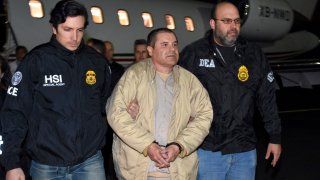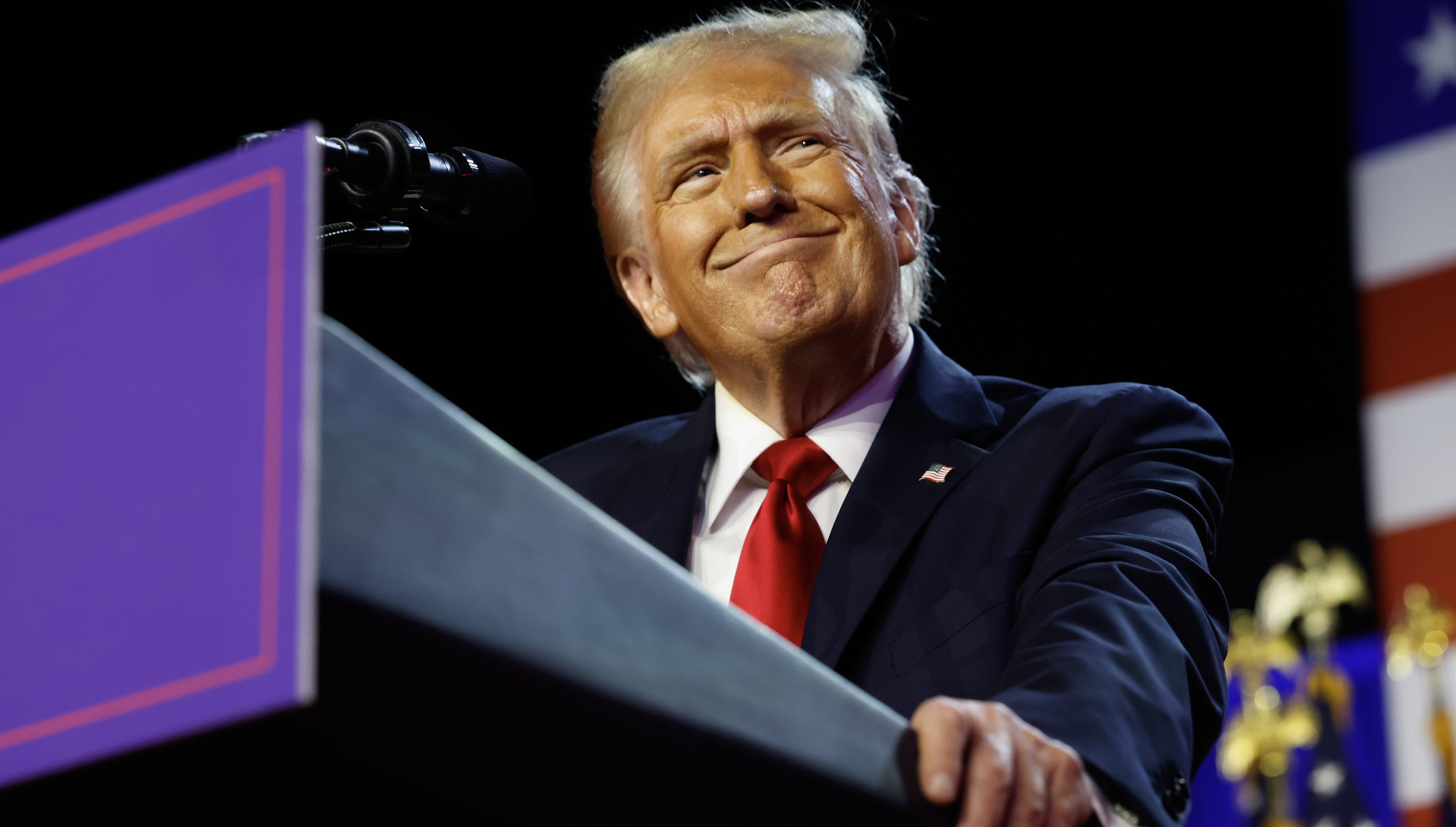
Mexico’s once most powerful drug lord, Joaquín “El Chapo” Guzmán is claiming he cannot get phone calls or visits in the maximum security U.S. prison where he is serving a life sentence
Guzmán, who in the past was able to break out of Mexican prisons seemingly at will, wrote a letter to District Court Judge Brian M. Cogan in the Eastern District of New York in late March, complaining that he hadn’t been able to speak with his twin daughters.
WATCH ANYTIME FOR FREE
Stream NBC10 Boston news for free, 24/7, wherever you are. |
He was convicted for running an industrial-scale drug smuggling operation and is serving his sentence at a maximum security prison in Florence, Colorado.
Get updates on what's happening in Boston to your inbox. Sign up for our News Headlines newsletter.
In May 2023, "the facility stopped giving me calls with my daughters. And I haven’t had calls with them for seven months,” Guzmán wrote. “I have asked when they are going to give me a call with my daughters and the staff here told me that the FBI agent who monitors the calls does not answer. That’s all they’ve told me.”
“It is unprecedented discrimination against me,” Guzmán complained. “They have decided to punish me by not letting me talk to my daughters.”
Guzmán also asked the judge to authorize a visit by his wife, Emma Coronel, but did not say when he was last allowed to see her. Coronel also pleaded guilty to drug charges in 2021 but was later released.
U.S. & World
“I ask that you please authorize her to visit me and to bring my daughters to visit me, since my daughters can only visit me when they are on school break, since they are studying in Mexico,” Guzmán wrote.
Cogan responded last week, saying that once Guzmán was convicted, all arrangements are in the hands of the U.S. Bureau of Prisons, and that he had no power to intervene.
In his reply, Cogan also said that after his conviction, “the Bureau of Prisons became solely responsible” for the conditions of Guzmán's confinement and that the judge cannot change them.
“Accordingly, his request must be denied,” the judge said.
The letters were filed by the court to the case file, which is accessible to the public.
In December, Guzmán's 95-year-old mother died in Mexico's northern state of Sinaloa. She apparently had not seen her son since he was sent to the prison in Colorado.
Lawyers for Guzmán's family did not respond to messages requesting comment.
Guzmán led the Sinaloa cartel in bloody drug turf battles that claimed the lives of thousands of Mexicans. He escaped twice from Mexican prisons, once through a mile-long tunnel dug running from his cell.
After he was extradited to New York, his three-month trial included tales of grisly killings, political payoffs, cocaine hidden in jalapeno cans and jewel-encrusted guns.
There is also a chance he may one day see his son in prison. In 2023, Mexico extradited one of his many sons, Ovidio Guzmán López, to the United States to face drug trafficking, money laundering and other charges.
The younger Guzmán is believed to have led the Sinaloa cartel’s push to produce and export fentanyl to the United States, where it has been blamed for about 70,000 overdose deaths annually.



